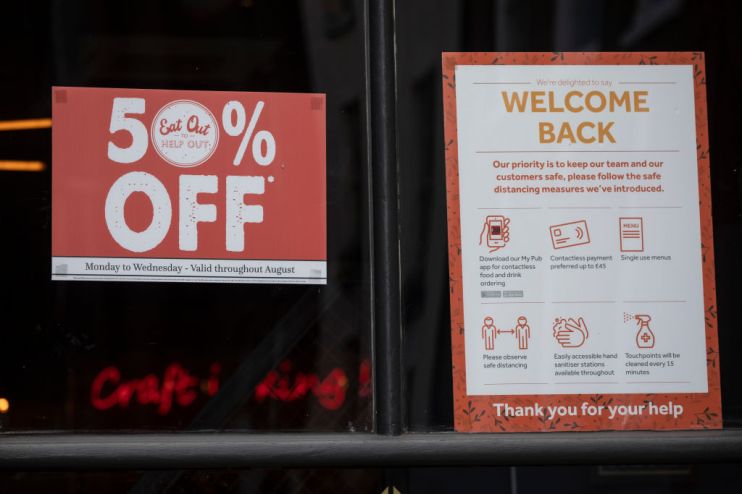Analysis: How did inflation rise at its fastest pace on record?

Inflation in the UK is soaring at its fastest pace since records began. On an annual basis, prices jumped 3.2 per cent last month, up from two per cent in July, the highest monthly percentage point increase recorded, primarily driven by sharp rises in the cost of eating out compared to the same period in 2020.
Much of these swelling costs are down to temporary effects. The government launched its Eat Out to Help Out scheme last summer and a temporary VAT cut for the leisure and hospitality sectors.
These measures artificially reduced prices in the sector, meaning they were always going to climb rapidly.
A surge in demand for second-hand cars since the onset of the pandemic also contributed to a higher than expected inflation clip last month. According to the Office for National Statistics (ONS), prices for used cars have increased 18.4 per cent since April this year.
A shortage of semiconductor chips caused by chip suppliers prioritising selling to mobile phone and computer manufacturers due to profits on these sales being higher than those offered by trading with car manufacturers has stunted new car production. A lack of available new cars steered consumers to second-hand alternatives.
Meanwhile, prices for commodities have soared in recent months, driven by demand for goods remaining strong despite the services industry emerging from Covid induced lockdowns. Hot demand for goods has partly triggered supply chain snarl ups due to firms struggling to scale production as a result of ongoing Covid disruption constriction capacity.
According to the ONS’ producer price index, the cost of crude oil has risen 49.6 per cent annually, indicating consumer prices could rise further if businesses pass on higher production costs to protect margins.
And finally, the energy price cap will rise 12 percentage points in October, meaning household bills will jump again soon.
But, recent spikes in prices could be temporary. The base effects of the Eat Out to Help Out scheme will not bleed into next month. Price increases for commodities should cool as spending becomes more evenly distributed between goods and services (this should also clear supply chain bottlenecks).
However, elevated inflation will raise pressure on the Bank of England to tighten monetary policy at its meeting of ratesetters next Wednesday. Although weak GDP figures released this week may ease calls for premature rate hikes or bond buying tapering.
The Bank expects inflation to reach four per cent by the end of the year. It may be hard to justify that as purely temporary.